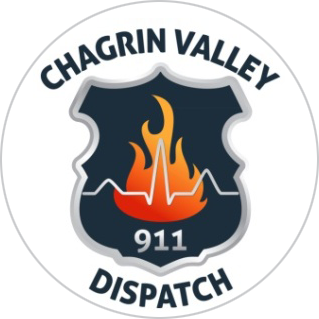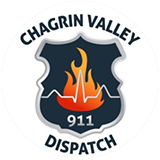Dispatcher Job Summary:
The Public Safety Telecommunicator plays a critical role in emergency response. A Public Safety Telecommunicator provides critical life-saving assistance to citizens requesting police, fire, or emergency medical assistance, in addition to the responding units dispatched to handle the response. Through professional information gathering, a Public Safety Telecommunicator determines the nature of the call and what type of assistance or information is needed. For calls requiring police, fire, or emergency medical response, a Public Safety Telecommunicator professionally dispatches the appropriate agency to the scene, while maintaining proper computer records of all units dispatched.
Supervision Received:
Works under the close supervision of the Center Manager and the Assistant Director.
General Description of Essential Job Tasks:
The following are general descriptions of the essential job tasks of the position. Other related tasks may be assigned as necessary and appropriate.
- Answers calls for emergency response received via voice, text, TTY, and video.
- Questions voice, text, and TTY callers to determine the nature and location of the problem and extracts and records essential information.
- Analyzes conflicting and/or limited location information to direct first responders to the scene.
- Views, records, and disseminates to the appropriate responders, essential information provided through video recordings.
- Contacts disconnected calls to determine the nature and location of the problem and enters information as appropriate.
- Questions voice, text, and TTY callers to determine the nature and location of the problem and extracts and records essential information.
- Dispatches, via a radio console or other electronic means, emergency and other calls requiring police, fire, or emergency medical response according to priority and availability of field units.
- Maintains strict radio discipline at all times
- Complies with Center procedures in the transmission of all radio traffic.
- Monitors dispatched units’ activities. Receives and transmits to field units updated information as it is received.
- Takes protective actions for first responders by providing life-safety information during responses such as ‘officer down’ and MAYDAY calls.
- Administers care by providing pre-arrival medical instruction by directing callers through procedures such as CPR, childbirth, and control of blood loss while emergency medical services are in route.
- Gathers, analyzes and reports critical information during life-or-death situations such as crimes in progress, medical emergencies and fire/rescue incidents.
- Negotiates with suicidal callers or hostage takers while emergency responders are in route.
- Manages communications of emergency responders to incidents and assists with incident operations during events such as active shooter and officer down responses.
- Deploys units to the scene of planned events, major emergencies or ongoing incidents as required by policy.
- Enters incident data into computer aided dispatch system, maintaining various automated and manual logs, records and files relating to call-taking and dispatching activities.
- Retrieves and accurately relays to requesting law enforcement field units, information obtained through the Law Enforcement Automated Data System, (LEADS).
- Enters and maintains law enforcement data in the system as appropriate
- Answers administrative telephone lines, provides routine non-technical information upon request and refers all other inquired to the proper person or department.
Essential Knowledge, Skills, and Abilities:
Oral and Written Communications:
- Demonstrated skill or ability to:
- Speak English with sufficient clarity to be understood by others on the telephone, radio, or in person.
- Actively listen to others for an understanding of their needs and situations
- Assertively guide conversations in order to quickly and accurately gather pertinent information
- Communicate critical information professionally and precisely to the proper recipient.
- Read and understand written correspondence, memoranda, and directives
- Reports events and information in writing legibly and accurately, using proper English grammar and structure.
Decision Making/Problem Solving:
- Demonstrated skill or ability to:
- Act in a decisive manner, using good and informed judgement (common sense)
- Effectively prioritize situations and information and make appropriate decisions based on information received.
- Effectively analyze conflicting and/or limited information.
- Handle a variety of rapidly flowing information at once.
- Perform multiple tasks simultaneously; be able to do several things at one time and remain focused under stress (e., multi-tasking abilities).
- Adjust to new or unique situations.
- Remember numerous details.
- Maintain objectivity in decision making process.
- Learn and apply new information.
Interpersonal Relationships:
- Demonstrated skill or ability to:
- Represent the organization to other agencies and citizen with an unbiased, courteous, helpful, accurate, and business-like attitude in all professional and personal contact.
- Work cooperatively with supervisors and establish cohesive, effective relationships with peers (e., team worker abilities).
- Detach from callers’ emotions, yet project an image of empathy (e., avoid personal involvement).
- Maintain appropriate and constructive behavior and attitude in response to difficult or adverse situations.
- Accept criticism and/or discipline without reacting defensively, rationalizing mistakes or blaming others for one’s own failures.
- Act in a mature, dependable fashion.
- Accept responsibility for actions.
- Maintain dependable work habits such as reporting to work on time, with little prompting and intervention.
- Respect private & confidential information.
- Support and carry out directives.
Physical abilities:
- Must have the ability to:
- Hear and understand sound sources coming through a communications headset and/or radio and/or standard telephone received, including the ability to hear and understand other outside sound sources while wearing communications headset (e., the ability to hear sound sources not coming through the headset; ability to hear through both ears).
- Speak and write English clearly.
- Read and discern visual images on a variety of media, including the ability to read and understand maps, and the ability to distinguish between colors on a color-coded computer screen.
- Type accurately on a computer keyboard while conversing with callers and response units.
- Record names and numbers accurately (e., not transpose numbers and/or letters.)
- Work all shifts of a 24-hour per day period, signing up for on-call shifts as well as being available for emergency call-in overtime.
Technical Knowledge:
- Must acquire and maintain a working knowledge public safety communications equipment, practices and procedures including but not limited to:
- Knowledge of functions and operation of computer aided dispatch (CAD) system and manual call recording/dispatch system.
- Knowledge of functions and operation of telephone console, radio console, and other standard communications equipment.
- Knowledge of how to use systems and resources to determine locations
- Knowledge of call-taking and dispatching techniques/procedures for handling incoming voice, text, TTY, and video calls.
- Knowledge of proper use of emergency medical pre-arrival protocol system
- Knowledge of proper use of local, state, and national computer systems and functions
- Knowledge of legal liability issues common to emergency call-taking, public safety dispatching and records keeping
Technical Knowledge, continued:
- Knowledge of geographical area served (g., familiarity with street names/layout, landmarks, numbering schemes, rivers, lakes, freeways, etc.)
- Knowledge of proper preparation of required reports, logs, and forms.
- Knowledge of Center policies, procedures, and standards of expected performance
- Knowledge of available resource materials and their use in the performing job duties (g., manuals, directories, maps, etc.).
Level and Type of Education Required:
Graduation from high school, or GED equivalent.
Working Environment:
The work environment characteristics described here are representative of those an employee encounters while performing the essential functions of this job. While performing the duties of this job, the employee typically works in a normal office environment. The noise level in the work environment is usually quiet to moderately loud.
Special Requirements:
No felony or serious misdemeanor convictions of moral turpitude prior to or during employment.

